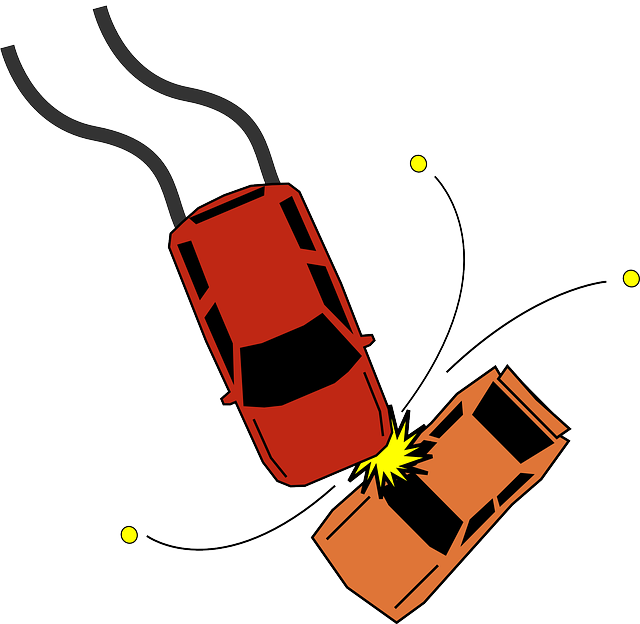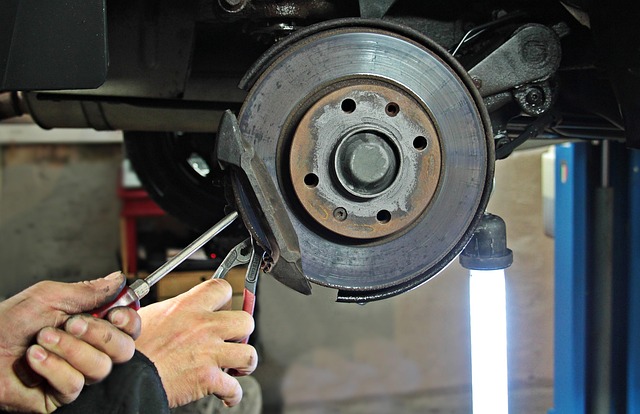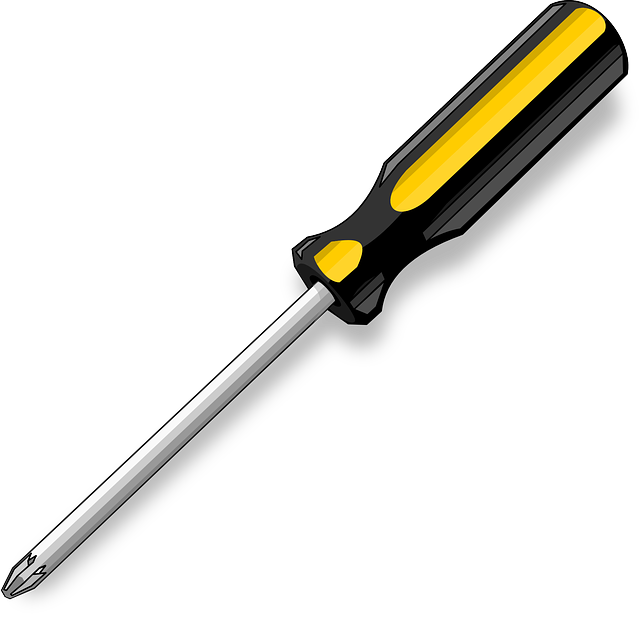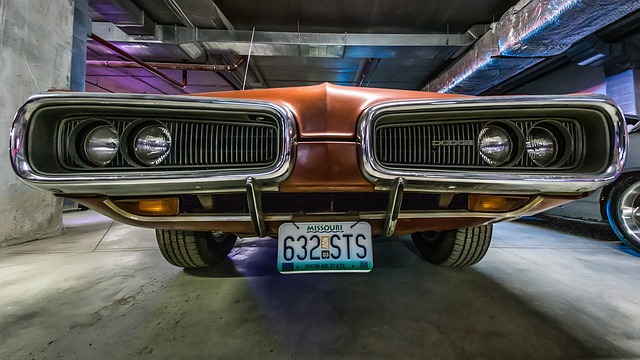In today's fast-paced world, loaner vehicles are a game-changer in auto body repair, offering convenience for both businesses and customers. By providing temporary replacement cars, repair shops can handle higher volumes without compromising client satisfaction. This benefits customers with minimal disruption to their daily lives and reduces wait times. Best practices include comprehensive inspections, staff training, and regular maintenance to ensure quality and safety. Ultimately, this system streamlines the auto body repair process, fostering positive relationships and promoting convenient services.
Loaner vehicles play a pivotal role in revolutionizing the landscape of auto body repair, offering a convenient solution for both shops and customers. By providing temporary replacement cars, loaner programs streamline the repair process, eliminating the hassle of transportation and wait times. This seamless integration enhances customer satisfaction, ensuring accessibility and convenience throughout the entire repair journey. In this article, we explore how these services contribute to efficient auto body repairs while prioritizing quality and safety.
- The Role of Loaner Vehicles in Streamlining Auto Body Repair Processes
- Benefits for Both Repair Shops and Customers: Increased Convenience and Accessibility
- Ensuring Quality and Safety: Best Practices for Utilizing Loaner Vehicles in Auto Body Repairs
The Role of Loaner Vehicles in Streamlining Auto Body Repair Processes

In today’s fast-paced world, convenient auto body repair is a top priority for car owners. Loaner vehicles play a pivotal role in streamlining this process, offering significant advantages to both customers and car body shops alike. When a vehicle requires extensive bodywork, providing a temporary replacement ensures that clients don’t face the inconvenience of being without their primary transportation for extended periods. This simple gesture enhances customer satisfaction, fostering loyalty and positive word-of-mouth recommendations.
Auto bodywork specialists appreciate the efficiency loaner vehicles bring to their operations. Instead of dealing with impatient customers who need their cars back promptly, shops can focus on delivering high-quality repairs. With a fleet of loaners, car body shops can accommodate more clients, reduce wait times, and potentially increase revenue. This system contributes to a smoother workflow, enabling technicians to manage their time effectively and prioritize tasks, ultimately benefiting everyone involved in the vehicle repair process.
Benefits for Both Repair Shops and Customers: Increased Convenience and Accessibility
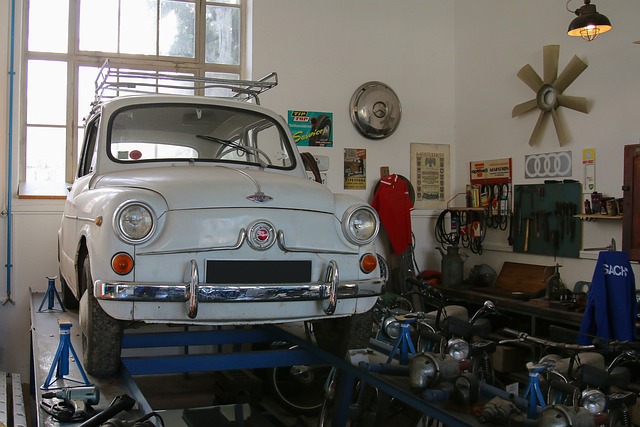
Loaner vehicles play a pivotal role in enhancing the convenience and accessibility of auto body repair services, benefiting both repair shops and their customers. For automotive body shops, offering loaner cars to clients is a strategic move that streamlines operations and improves customer satisfaction. It allows them to accommodate more repairs without overburdening their facilities, as damaged vehicles can be dropped off and picked up, reducing the need for customers to wait on-site. This efficiency leads to faster turnaround times, enabling auto body shops to serve more clients in less time.
Customers also reap significant advantages from this practice. Instead of being stranded without a vehicle or facing lengthy waits, individuals can opt for a temporary loaner car while their damaged vehicle is being repaired. This service provides peace of mind and ensures they remain mobile throughout the repair process, making it a convenient option for those who rely heavily on their cars for daily activities. As a result, both parties benefit from improved convenience in auto body repair services, fostering a positive relationship between repair shops and their clients.
Ensuring Quality and Safety: Best Practices for Utilizing Loaner Vehicles in Auto Body Repairs
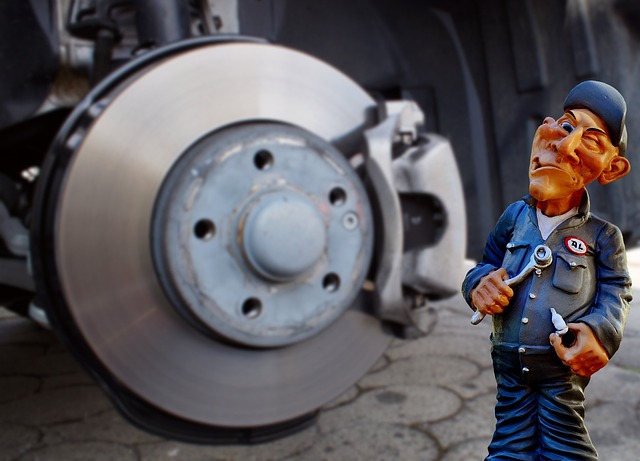
In the pursuit of convenient auto body repair, utilizing loaner vehicles plays a pivotal role. To ensure quality and safety, collision repair shops must adhere to best practices when employing these temporary substitutes. First and foremost, thorough inspection is paramount. Each loaner vehicle should undergo rigorous checking to guarantee it meets the necessary standards for both structural integrity and operational safety. This involves assessing crucial components such as brakes, lights, steering systems, and overall vehicle condition.
Moreover, proper training of staff is essential. Technicians working on loaner vehicles need to be adept at identifying potential issues and utilizing the latest tools and techniques for vehicle dent repair and bodywork. Regular maintenance schedules should also be enforced to keep these cars in peak condition, ensuring a seamless experience for customers requiring convenient auto body repair services.
Loaner vehicles play a pivotal role in revolutionizing convenient auto body repair by streamlining processes, enhancing accessibility, and ensuring quality. For repair shops, offering loaner cars to customers not only improves customer satisfaction but also enables efficient scheduling and reduced downtime. Customers benefit from immediate transportation solutions, minimizing their inconvenience during the repair process. By following best practices, such as maintaining safety standards and providing well-maintained vehicles, auto body repair shops can ensure a seamless experience for clients seeking convenient repairs.

